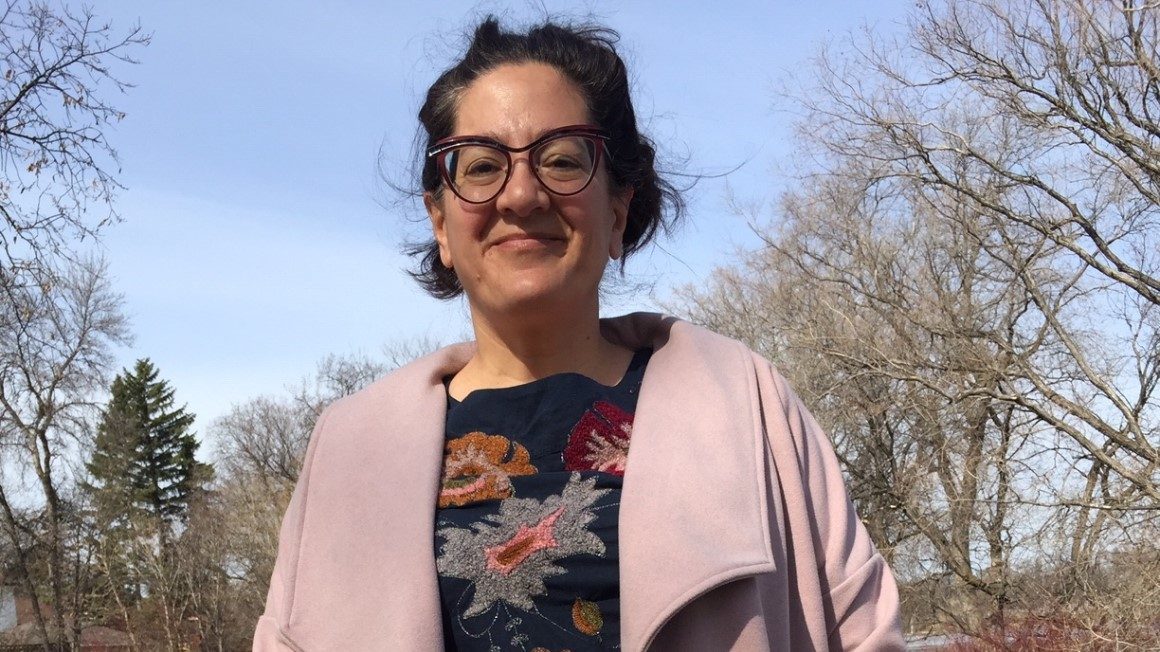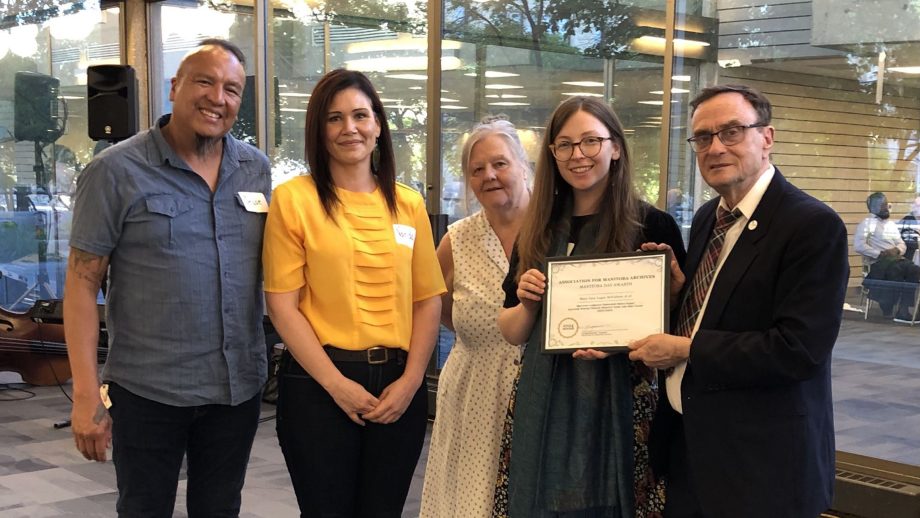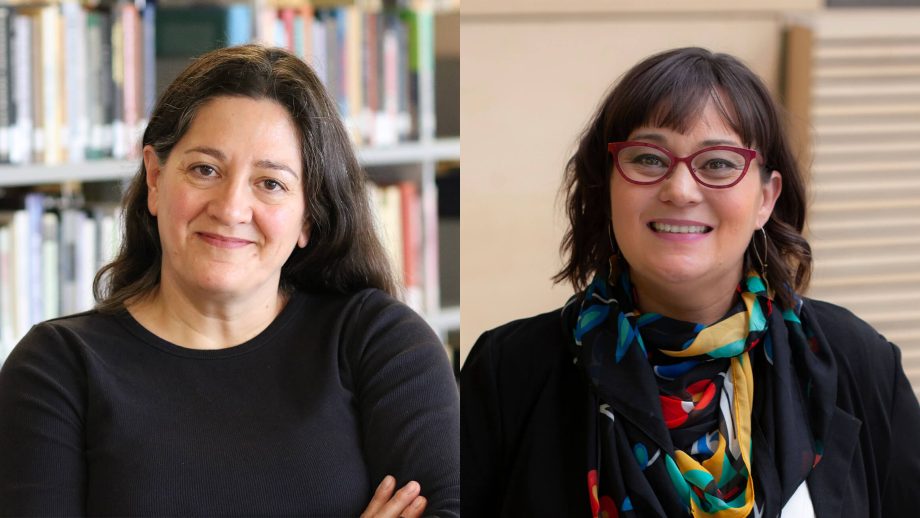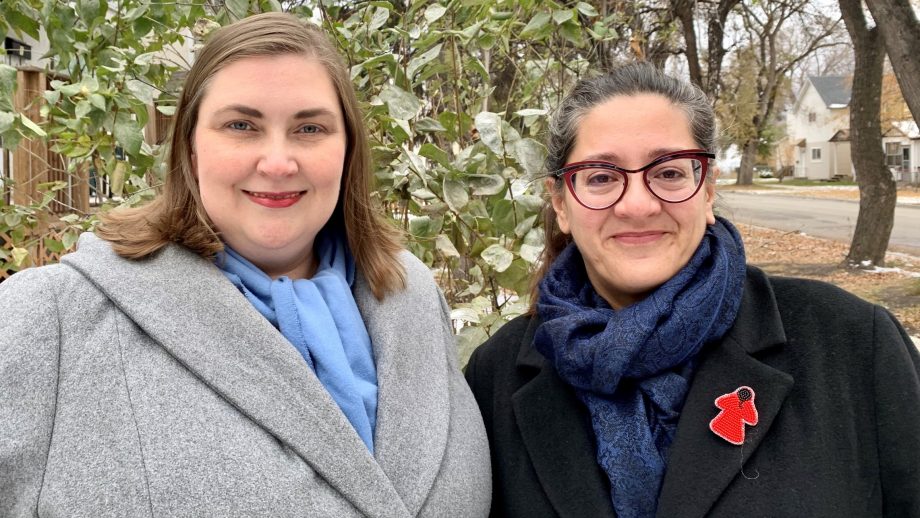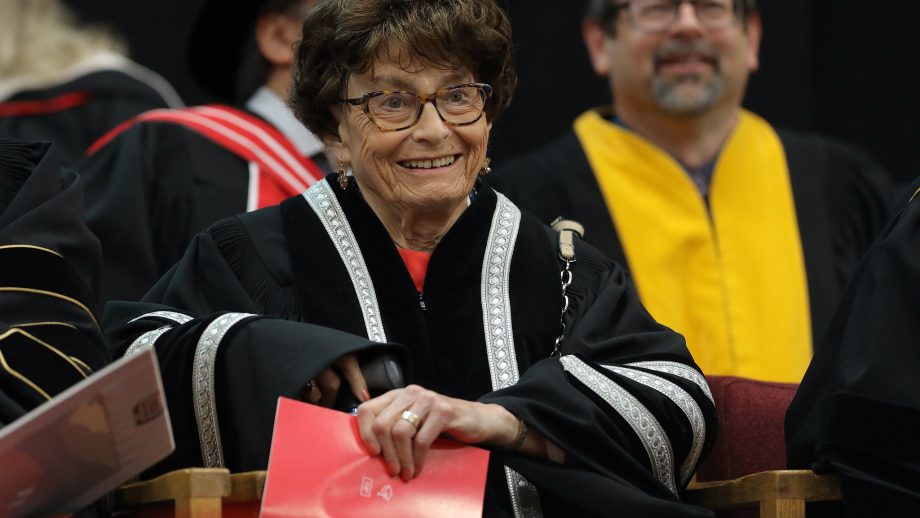When COVID-19 began turning her world upside down, the first thing University of Winnipeg historian Dr. Mary Jane McCallum did was look back at her own family’s history of diseases.
“I had to find a personal connection to what was happening, to look to the past – because I just didn’t know what to do,” she said. “So, I started looking at our band’s records for the history of influenza and thinking about stories around Indigenous women and disease survival.”
For example, McCallum points to the early Ojibwe stories of the jingle dress, which she explains has origins in a dream about the ill daughter of a medicine man, whose health improves after joining a dance circle in a dress lined with silver cones made with lids from snuff cans.
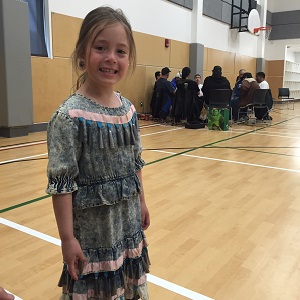
McCallum’s daughter wears a jingle dress loaned to her by Ray and Rhonda Stevenson at the UWinnipeg Powwow Club (photo supplied).
“The time frame of this story leads historians to think it’s directly connected to the 1918-19 influenza epidemic, and I’m interested in thinking about Indigenous ways of seeing and interpreting heath and ill health, to understand medicine in a more holistic, psychological way,” said McCallum.
McCallum is the Canada Research Chair in Indigenous People, History, and Archives, and member of the Munsee Delaware Nation. Her current research projects reflect her interests in 20th century histories of health, education, and labour, such as her CIHR-funded project, Indigenous Histories of Tuberculosis in Manitoba 1930-1970.
She is also working on a community-led Munsee Delaware Nation Language and History Group project examining boys and girls’ work at Mount Elgin Residential School, and has recently co-authored a paper with Dr. Maureen Lux to understand the history of Medicare in the context of treaty rights to healthcare.
The paper, Medicare v Medicine Chest: Court Challenges and Treaty Rights to Healthcare, will be published in an upcoming collection celebrating 50 years of Medicare.
It examines how changing policy and bureaucracy impacts First Nations access to medicine, medical services, and hospital care, and what actually happens for First Nations’ health when Medicare comes through.
“Our contribution was to talk about Indigenous people and Medicare,” said McCallum. “It’s an angle of the story that hasn’t been included before, and it forced us to think about the non-history of Indigenous people in universal health care in Canada and how their rights get misinterpreted after Medicare comes in.”
The medicine chest clause in Treaty Six was negotiated after the 1870 smallpox epidemic, but early in the 20th century, the federal government decided to no longer provide health care treaty rights to First Nations people able to pay for it themselves.
“From that point on, it gets connected with a sense of welfare, and I think that’s really important to consider, because there is a difference,” said McCallum.
“When Medicare was introduced, it was assumed that universal health care would dissolve First Nations treaty rights to health care, and that health services should become a ‘benefit’ like any other — but it’s just not like that,” she said. “First Nations argued that the Medicine Chest, not Medicare, should define the relationship between Indigenous people’s healthcare and the state.”
To understand the historical experiences of First Nations people, McCallum analyses archival records, material evidence, and oral histories. While some of her work has been delayed due to archive closures, she has kept busy reviewing data available online.
“I’ve been fortunate in that there has been quite a bit online,” she said. “With the language and history group, we are looking online at the Library and Archives Canada website, and a couple of other resources for oral history, to continue our work despite not being able to meet in person.”
Reflecting on the present through the past, it’s clear to McCallum that there remain profound inequities in our society that are amplified during times of crisis. She is struck by the enormous losses faced by Indigenous people during and in the aftermath of epidemics, including losses of land, rights, self-determination, economic and natural resources, and Indigenous knowledge.
At the same time, Indigenous survival becomes most remarkable in contexts of infectious and deadly disease.
“This is especially so as we know that Indigenous people and people of colour continue to face additional, and often unnecessarily intrusive, layers of surveillance and policing,” she said. “Communication about public health, including vital life-and-death information, is often poor. This combination of anxiety, a sense of lack of control, and confusion is not new.”
Listen to An Indigenous Historian’s Take on COVID-19 (Media Indigena) to learn more about McCallum’s research.

